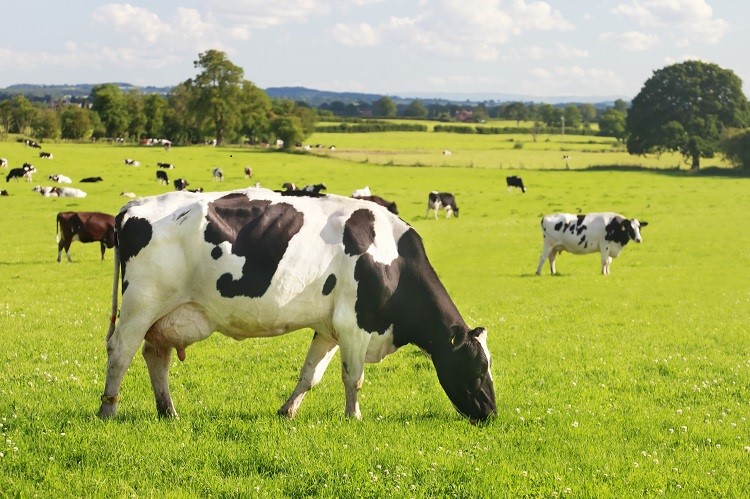Queen's and AFBI research shows how healthy animals could combat the climate crisis
Across the world, farmers and governments are under growing pressure to address emissions from livestock, leading to calls to reduce livestock numbers.

It is believed that improving animal health may reduce emissions, without reducing numbers or cutting food production, consequently enhancing economic outcomes and animal welfare.
Unfortunately, the opportunity is being missed due to existing accounting systems and a lack of data making it challenging to estimate the reductions attributable to improved health.
A new study, led by Queen’s University Belfast with contribution from AFBI researchers, sets out a path showcasing how this can be done, providing a route to relatively painless climate change mitigation.
Working with 14 leading institutions from across the globe, the team aimed to identify the contribution of animal diseases to greenhouse gas (GHG) emissions.
Published in Proceedings of the Royal Society B, the results reveal evidence that emissions increased in animals whose health is compromised, indicating that improved health could subsequently help mitigate climate change.
The research suggests that emissions could be reduced right away by preventing and treating the diseases with the highest GHG impacts. However, challenges such as common, low-grade infections with parasites and bacteria, and other production diseases like mastitis and lameness, account for a large part of the burden, but are not tracked as closely as higher profile disease outbreaks.
The impact of such diseases is poorly represented within existing accounting methods for greenhouse gas emissions, meaning that efforts to reduce emissions through improved animal health, although effective, are not acknowledged or measured in national inventories and consequently do not always receive the backing they deserve.
This recent research sets out a path by which reduced emissions through better animal health can be measured and makes recommendations for action to deliver this win-win solution.
Commenting on the results, lead researcher, Professor Ilias Kyriazakis, from the Institute for Global Food Security at Queen’s University Belfast, said:
“This is a serious missed opportunity because, unlike many other technical and policy solutions to livestock emissions, improved health has multiple proven positive impacts and risks fewer unintended consequences.
“Improving animal health can deliver an immediate reduction in greenhouse gas emissions from livestock and at the same time improve production efficiency but is not prioritised because its benefits are not well quantified. We propose a new and rigorous method to account for these benefits and drive action to reduce the impact of livestock systems.”
Dr Frances Ryan, Supporting Evidence-Based Interventions in Livestock based at the University of Edinburgh, added:
“Livestock are crucial to livelihoods around the world and play an especially important role for food security and the provision of nutrient-dense food in the global south. Furthermore, livestock in low and middle income countries support family savings and cultural roles, as well as being useful for draught, and fertiliser provision.
“Livestock are more mobile than crops and so are especially important for climate adaptation. Therefore, it is important that in striving for reductions in greenhouse gas emissions we do not undermine these benefits or endanger food security. Reducing emissions by improving animal health allows us to address environmental issues while protecting people who rely on livestock. We should seize this opportunity to get closer to a sustainable planetary future.’’
Dr Johannes Charlier, Kreavet and the STAR-IDAZ International Research Consortium said:
“Healthier livestock can deliver more cost-effective food production and enhanced animal welfare as well as mitigating environmental impacts. A research roadmap for reduced emissions through animal health helps to prioritise research to deliver on this great challenge.”
A policy brief summary has also now been published and is available to view by clicking this link
Media
For media enquires please contact Grace White - g.white@qub.ac.uk

